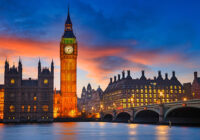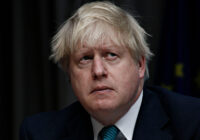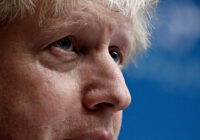The reality behind the cause of terrorism is somewhere in between the failures of integration as a domestic policy level and the consequences of foreign policy in the Middle East.
It was another night in London and another terrorist attack on Britain. On June 3, the capital witnessed a horrific act of brutality and violence. This time it was at the hands of three assailants, who started their deadly assault at 22:08 on London Bridge by driving their van into innocent civilians. These attackers then moved to Borough Market where they hacked away at Londoners. Eight minutes later, all three attackers had been shot dead by the police. In these minutes of carnage and mayhem, the attackers stabbed and tried to slit the throats of random people, killing seven and injuring 48 others.
Three terrorist attacks in three months. Questions are going to be asked as to whether this wave of terrorism in the United Kingdom heralds a new dawn in extremist violence, with all the implications it raises for national security. It will also be questioned as to why the threat level was reduced from critical to severe and troops taken off the streets. Has there been an intelligence failure?
Since the Westminster attacks on March 22, it is said that five attacks have been thwarted. But two have been successful. Less than two weeks ago, 22 people were killed at a concert arena in Manchester. This was the first time an explosive device was used in a terrorist attack since the London bombings of 2005. The attacks on Saturday night used a van, similar to Nice, Berlin and the Westminster attacks, but the use of knives was at a different scale to that of the horrific murder of Lee Rigby in 2013. However previous events can be categorized, it is clear that in the current climate a far more sinister threat is at large.
These attackers are attempting to prevent the UK election from going ahead, frustrating the democratic process. These attacks are an attempt to instill terror, to stop ordinary people from going about their lives. Their aim is to disrupt our everyday existence, to cement hatred between groups and to pursue a warped agenda.
The usual outcry is to throw scorn at these attackers for their evil barbarity, condemning them to a fate worse than hell. While it is right and correct that condemnation is directed at those who deserve it the most, in a pernicious political and cultural climate where emotions speak more loudly than intellect, the worry is how people begin to compartmentalize others, making vast generalizations about an entire religion and a global faith community. Nor is it wholly satisfactory to throw scorn at foreign policy as the primary motivating factor.
The reality is somewhere in between the failures of integration as a domestic policy level and the consequences of a foreign policy in the Middle East, where regime change has been the dominant motif. Coupled with a general lack of agency among most Muslims, it is only aspirational and ambitious Muslims who are heard loudest.
AFTER LONDON: MUSLIMS IN THE UK
British Muslims should not allow their ethnic, sectarian and ideological differences to come in the way of a difficult situation. There is a strongly held set of assumptions on the part of government and media that British Muslim communities are not doing enough to weed out the problems of radicalization from within. That they are not speaking out enough at times like this. It is true that British Muslims face all sorts of challenges that reduce their confidence and sense of engagement, but the idea that terrorist sympathizers live at large among them is somewhat of an overstatement.
However, in the absence of any message from communities, media and political discourses will fill the void with messages that divide rather than bring people together. The response to these attacks on the part of British Muslim communities needs to be the most robust it has ever been.
There will be people who will use these incidences to create further rifts or use it as an opportunity for political gain. US President Donald Trump wants to reintroduce a travel ban from Muslim countries. British Prime Minister Theresa May wants to ratchet up counterterrorism legislation, increasing sentences and getting private sector social media companies to work harder.
British Muslim communities must not feel that they have no agency in this regard. There needs to be much greater emphasis placed on speaking with a collective, activated and energized voice that clearly marks the separation between the terrorists and ordinary Muslims. These terrorist incidences have nothing to do with Islam or with the vast majority of Muslims in Britain, but in a number of instances, attackers do herald from within the geographies of Muslim communities. Ordinary Muslims bear no responsibility, but because these attackers have evoked the name of Islam, non-Muslims who have little or no understanding of the faith or its many tenants will uncritically absorb the dominant themes.
Ramadan is a month of giving and sharing. British Muslims have to take that extra step when so many forces are stacked against them. It is not the space to score any political points or shift the blame. The need now is to create a united front. This will help communities resolve internal issues as well as generate positive responses from the majority of society. In the absence of any centralized coordination, peripheral but loud voices will be heard, and these will only confuse and conflate. The time to act is now.
*[A version of this article was originally featured on the author’s blog.]
The views expressed in this article are the author’s own and do not necessarily reflect Fair Observer’s editorial policy.
Photo Credit: Urbancow
Support Fair Observer
We rely on your support for our independence, diversity and quality.
For more than 10 years, Fair Observer has been free, fair and independent. No billionaire owns us, no advertisers control us. We are a reader-supported nonprofit. Unlike many other publications, we keep our content free for readers regardless of where they live or whether they can afford to pay. We have no paywalls and no ads.
In the post-truth era of fake news, echo chambers and filter bubbles, we publish a plurality of perspectives from around the world. Anyone can publish with us, but everyone goes through a rigorous editorial process. So, you get fact-checked, well-reasoned content instead of noise.
We publish 2,500+ voices from 90+ countries. We also conduct education and training programs
on subjects ranging from digital media and journalism to writing and critical thinking. This
doesn’t come cheap. Servers, editors, trainers and web developers cost
money.
Please consider supporting us on a regular basis as a recurring donor or a
sustaining member.
Will you support FO’s journalism?
We rely on your support for our independence, diversity and quality.






